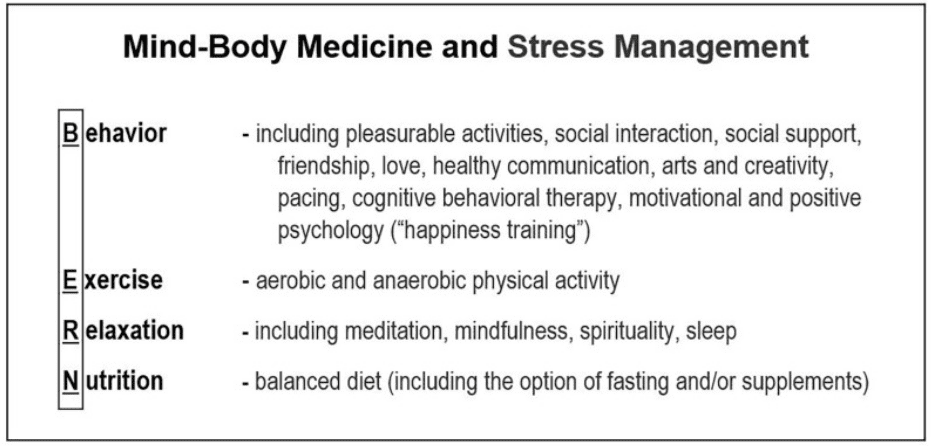
Fear: A Poem
It is said that before entering the sea
a river trembles with fear.
She looks back at the path she has traveled,
from the peaks of the mountains,
the long winding road crossing forests and villages.
And in front of her,
she sees an ocean so vast,
that to enter
there seems nothing more than to disappear forever.
But there is no other way.
The river can not go back.
Nobody can go back.
To go back is impossible in existence.
The river needs to take the risk
of entering the ocean
because only then will fear disappear,
because that’s where the river will know
it’s not about disappearing into the ocean,
but of becoming the ocean.
Khalil Gibran
You may wonder why I began with the poem on Fear. It’s because fear and stress resiliency are interconnected through the body's response to threats and challenges. Improving stress resiliency can help individuals manage fear more effectively, reducing the negative impact of stress on overall health.
Stress is ubiquitous in today’s life. There are many triggers to stress - work, relationships, worries about the future, and ill-health. Stress has a significant impact on the body, triggering a wide range of physiological responses. These responses are part of the body's natural "fight-or-flight" reaction. Eustress (good stress) is a beneficial type of stress that helps individuals grow, achieve goals, and enhance their well-being but when stress is chronic, it can lead to various negative health effects. A few examples of Eustress include academic and career advancement, adventure sports, work deadlines, and learning a new skill. The Yerkes-Dodson law in psychology suggests that eustress leads to elevated arousal levels that can improve performance.
Stress activates the Sympathetic Nervous System, leading to the release of adrenaline (epinephrine) and noradrenaline (norepinephrine). These hormones prepare the body to respond to a threat. The hypothalamus-pituitary-adrenal (HPA) axis is activated, leading to the release of cortisol, a primary stress hormone. Cortisol increases glucose levels in the blood, enhances the brain's use of glucose, consequently altering the gut function and downregulating the immune function.
Stress Management and Resiliency are essential self-care practices that help buffer stress, regain a sense of emotional control and enhance the quality of life. The BERN framework is based on our understanding of how the interaction between the brain, mind, body, and behavior can be used to improve our overall wellbeing.
The BERN framework shows that sleep, exercise, and nutrition are foundational pillars of stress resiliency. By maintaining a balanced approach to all three, individuals can significantly enhance their ability to manage and recover from stress. Each element supports the others, creating a robust framework for overall health and well-being.

The Comprehensive Resiliency Framework provides a holistic approach to understanding and building resilience, with stress resiliency being a key component. By addressing the psychological, emotional, physical, social, and environmental aspects of resiliency, individuals can develop a robust capacity to manage stress and thrive even in challenging circumstances.

To strengthen stress resiliency within this framework, focus on the following strategies:
- Mindfulness and Relaxation Techniques: Practices like meditation, deep breathing, and yoga can reduce the body’s stress response.
- Cognitive Behavioral Techniques that help change unhelpful thought patterns to productive thinking. For example If you’re thinking, “I’ll never be able to handle this,” you can reframe it to, “This is challenging, but I have the skills to manage it.” You could also keep a daily log of stressful situations, noting how you responded and any negative thoughts or emotions, then review to identify areas for change. Developing self-awareness is a way of accepting your anxiety without letting it control your behavior. Practicing gratitude is also a great way to regulate your thoughts and emotions.
- Physical Activity: Regular exercise improves overall health and can help manage the physiological effects of stress. A meta-analysis of 32 studies concluded that exposure to natural environments leads to fewer negative effects and greater positive effects. Time in nature might confer stress-relieving benefits through several mechanisms. Natural stimuli, such as landscapes and animals, effortlessly engage our attention, leading to less mental fatigue. As the evidence continues to accumulate regarding a link between time in nature and health (both mental and physical), exposure to nature is a good therapy for building resiliency to stress.
- Social Connections: Building and maintaining strong social networks can provide critical support during stressful times. Reach out to friends or family members regularly, join a support group, or participate in community activities.
